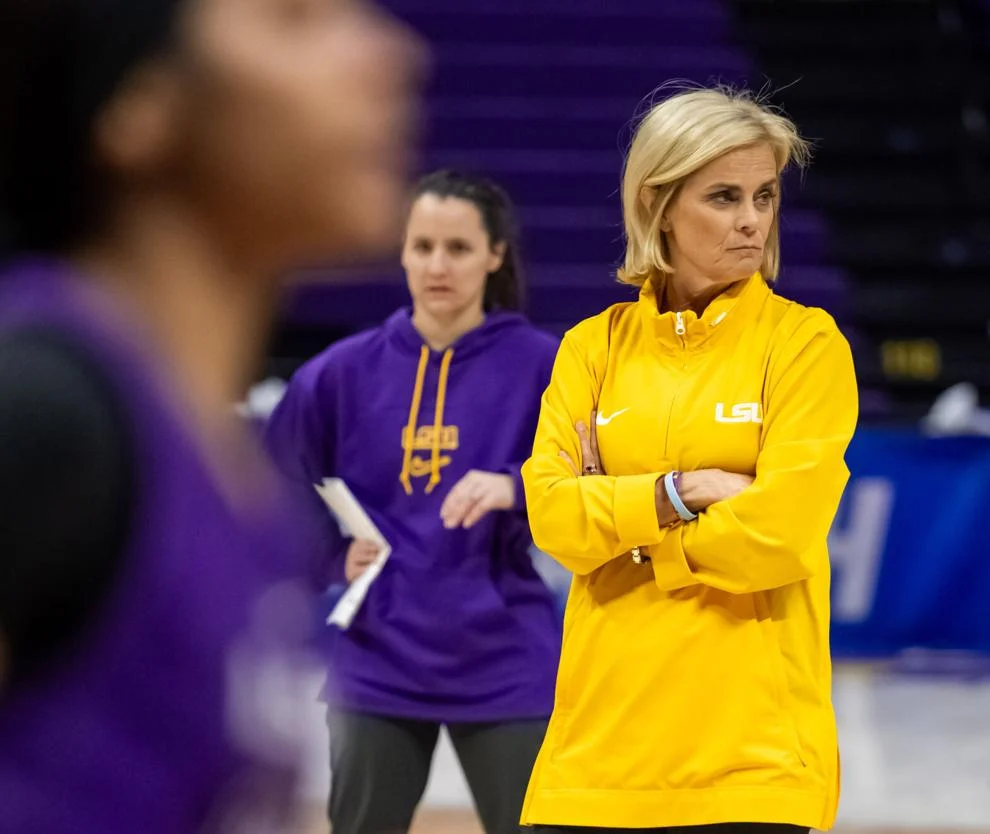Kim Mulkey, head coach of the LSU women’s basketball team, has long been a prominent figure in college basketball, known for her intense coaching style, competitive spirit, and remarkable success on the court. However, in recent interviews, Mulkey has opened up about the challenges she faces navigating the current landscape of NCAA athletics, describing it as “broken” and reflecting on the struggles that accompany her decision to continue in the coaching profession despite these difficulties.
The NCAA landscape, particularly in women’s sports, has undergone significant changes in recent years. While the growing attention and increased funding for women’s sports have been celebrated, it also brings with it heightened expectations, complex logistical issues, and a shifting power dynamic within collegiate athletics. The transformation has left coaches like Mulkey grappling with an environment that is often not in the best interests of the athletes themselves, yet increasingly focused on commercialization, media attention, and recruitment wars.
For Mulkey, the broken nature of the system is perhaps most apparent in the growing influence of NIL (Name, Image, Likeness) deals and the transfer portal. These changes have fundamentally altered how players move between programs and how they leverage their marketability, adding layers of unpredictability and financial complexities to team-building efforts. Coaches no longer control their rosters as they once did, and this uncertainty can create a sense of instability that complicates long-term planning. Mulkey has expressed concerns that this environment undermines the spirit of college athletics, which she believes should prioritize education and personal growth over commercialization.
In her conversations about the current state of the NCAA, Mulkey has questioned why she continues to do what she does. The frustrations she faces stem from the constant pressures to perform, the ever-evolving challenges that make sustained success harder to achieve, and the personal toll that coaching at the highest level can take. While her competitive drive remains intact, the increasing demands placed on her as a coach, mentor, and public figure often seem overwhelming. “Why do I keep doing this?” she has said. “It’s not for the money or the fame. It’s for the love of the game, for the kids, and for the challenge.”
This reflection highlights the core of Mulkey’s identity as a coach. Despite the tumultuous nature of the NCAA system, her passion for the game and her commitment to her players keep her coming back year after year. She values the opportunity to shape young women’s lives, teach them life lessons through sports, and help them achieve their goals both on and off the court. However, Mulkey’s candid statements about the difficulties of navigating this “broken” system serve as a reminder of the emotional and professional toll that high-level coaching can take, particularly for those like Mulkey who are trying to balance success with integrity.
Moreover, Mulkey’s leadership at LSU comes during a time when women’s basketball is experiencing an unprecedented rise in popularity and visibility, with record-breaking TV ratings and increased media attention. While this success brings more opportunities, it also means heightened scrutiny, increased pressure, and sometimes an unhealthy focus on individual players or programs rather than the collective spirit of the sport.
In conclusion, Kim Mulkey’s reflections on the challenges of coaching in today’s “broken” NCAA landscape speak to the complexities of modern collegiate athletics. While she remains deeply committed to her players and the sport, her struggles highlight a broader issue within NCAA sports — the increasing commercialization of athletics, the chaos of player movement, and the toll that these dynamics take on those who are committed to leading student-athletes. Mulkey’s candid comments serve as a powerful reminder of the sacrifices and challenges that coaches face, even in the face of success.



